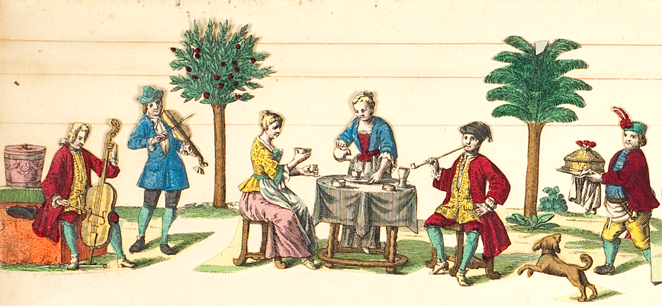Collection context
Summary
- Creator:
- Debs, Eugene V. (Eugene Victor), 1855-1926, Curry, Mabel Dunlap, 1868-1947, Debs, Theodore, 1864-1945, and Goodyear, Rosalie
- Abstract:
- The Curry mss., 1919-1945, primarily consists of the letters of socialist leader Eugene Victor Debs, 1855-1926 to his secretary Mabel (Dunlap) Curry, 1868-1947.
- Extent:
- 1 Box (1 standard)
- Language:
- Materials are in English .
- Preferred citation:
[Item], Curry mss., Lilly Library, Indiana University, Bloomington, Indiana.
Background
- Biographical / Historical:
Eugene Victor Debs, 1855-1926, was a socialist leader and labor organizer. He was born in Terre Haute, Indiana, and left home at 14 to work in the railroad industry as a locomotive fireman. He married Kate Metzel on June 9, 1885, and they made their permanent home in Terre Haute. A strong proponent of organized labor, Debs became the president of the American Railway Union in 1893, and his first imprisonment came as a result of his prominent role in the 1894 Pullman Palace Car Company strike. He discovered the works of Karl Marx while in prison and became a Socialist in 1897. He ran for president as the Socialist Party candidate in 1900, 1904, 1908, 1912, and 1920, the latter election occurring, famously, while Debs was in prison again for criticizing the government's enforcement of the 1917 Espionage Act. His time in jail negatively affected his health, and he spent the remaining years of his life at Lindlahr Sanitarium in Elmhurst, Illinois.
Mabel (Dunlap) Curry, 1868-1947, was Eugene V. Debs' secretary and close friend. She was born in Franklin, Indiana and married Charles Curry, a professor of English literature at Indiana State University in Terre Haute, Indiana. The couple and their three children lived near Eugene V. Debs in Terre Haute, so Eugene and Mabel developed a social relationship. Mabel herself was a supporter of women's suffrage, and she spoke nationally and locally on the Chautauqua circuit. Letters exchanged between Mabel and Eugene reveal a deep and intense affection between the two, but Mabel herself wanted to be remembered simply as Eugene's "comrade."
- Scope and Content:
The letters are concentrated in the years that Debs served a sentence in the Atlanta Penitentiary for his conviction of sedition in 1918 after criticizing the 1917 Espionage Act. Approximately seventy of the letters are undated, but a perusal of the contents separates them into "Pre-prison," "Prison," "Post-prison," and "Indefinite" categories.
The Pre-prison letters were probably written from Boulder, Colorado where he had gone to recuperate after suffering a physical collapse in 1917. The letters from Prison are largely personal in nature. The Post-prison letters are written on stationery for the Congressional Campaign of 1922 and from Lindlahr Sanitarium. The Indefinite letters belong to a period of time when Debs was traveling the country on lecture tours.
Throughout the letters Debs comments on many topics, such as his time at Lindlahr Sanitarium; a portrait that was to be painted by a Russian artist; the Pullman Strike of 1894, the death of Eva Amelia (Parke) Ingersoll, a meeting with labor organizer William Zebulon Foster, and smoking. He also mentions actress Helen Gardner; writer and labor activist Ralph Chaplin; Mrs. Lovejoy of Girard, Kansas; and Robert Addison Hague.
Other letters of Debs are written to Rosalie Heaton Goodyear, poet and editorial assistant for radical and liberal papers. Those written to her while in the Atlanta Penitentiary are on the backs of old envelopes. Goodyear in turn relates how she was introduced to Debs and how she received the letters via Mabel (Dunlap) Curry.
Other correspondents include Theodore Debs, 1864-1945, bookkeeper and younger brother of Eugene Victor Debs, and socialist official William H. Henry. Henry wrote to Debs while Debs was serving in the West Virginia Penitentiary in Moundsville, West Virginia, prior to going to Atlanta.
The letters of 1945 relate to the writing of a biography of Debs by Irving Stone.
Several snapshots and photographs of Debs from 1897-1922 and a folder of printed pieces complete the collection. Some of the letters are accompanied by typescripts.
- Acquisition information:
- Purchase: 1974
- Arrangement:
The contents of this collection are arranged chronologically.
- Physical location:
- Lilly - Stacks
Access
- RESTRICTIONS:
-
This collection is open for research.
Many collections are housed offsite; retrieval requires advance notice. Please make an appointment a minimum of one week in advance of your visit.
- TERMS OF ACCESS:
-
Photography and digitization may be restricted for some collections. Copyright restrictions may apply. Before publishing, researchers are responsible for securing permission from all applicable rights holders, then filling out the Permission to Publish form.
- PREFERRED CITATION:
-
[Item], Curry mss., Lilly Library, Indiana University, Bloomington, Indiana.
- CAMPUS:
- Indiana University Bloomington
- LOCATION OF THIS COLLECTION:
-
1200 East Seventh StreetBloomington, Indiana 47405-5500, USA
- CAMPUS:
- Indiana University Bloomington
- CONTACT:
-
(812) 855-2452liblilly@indiana.edu

